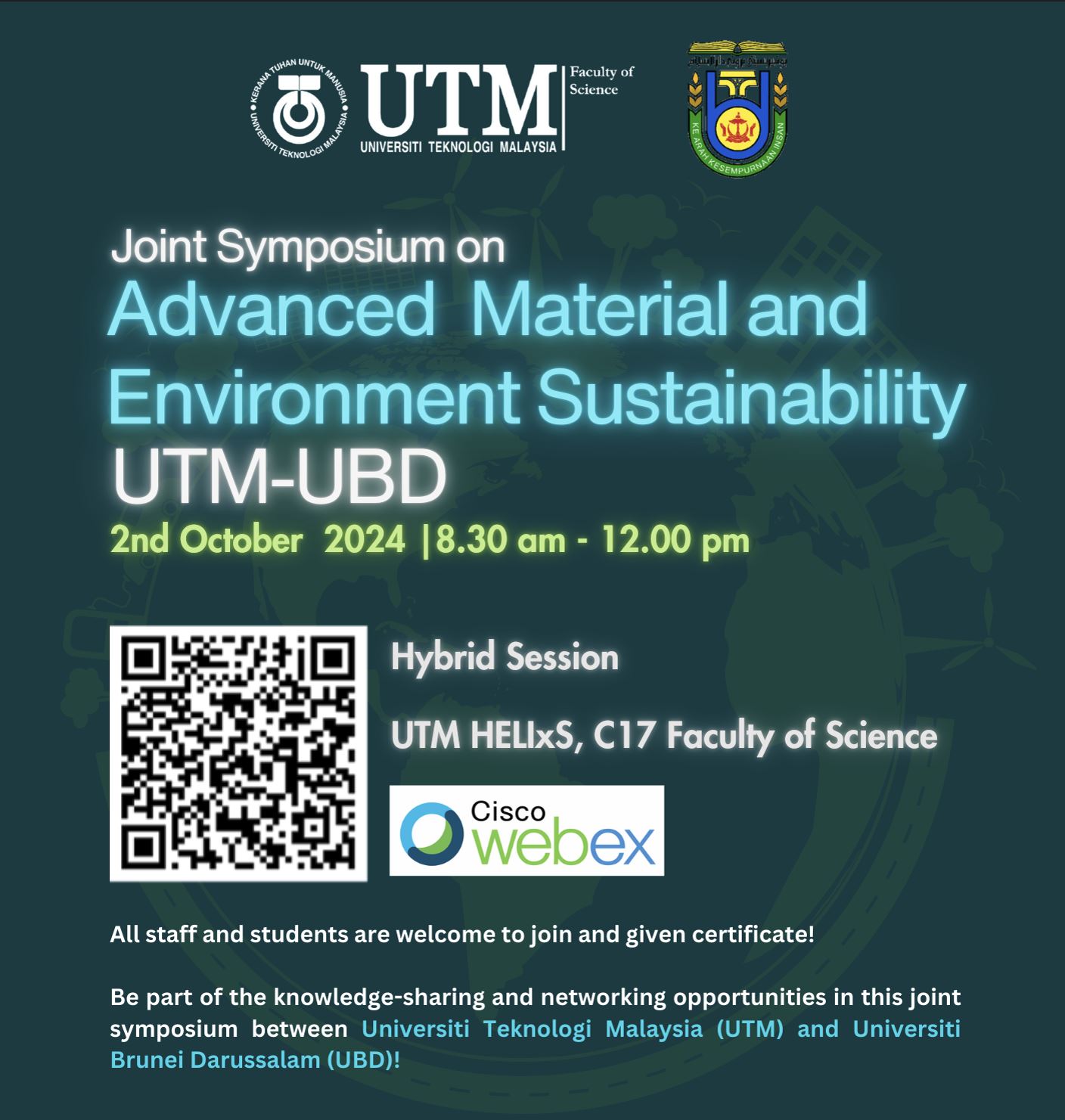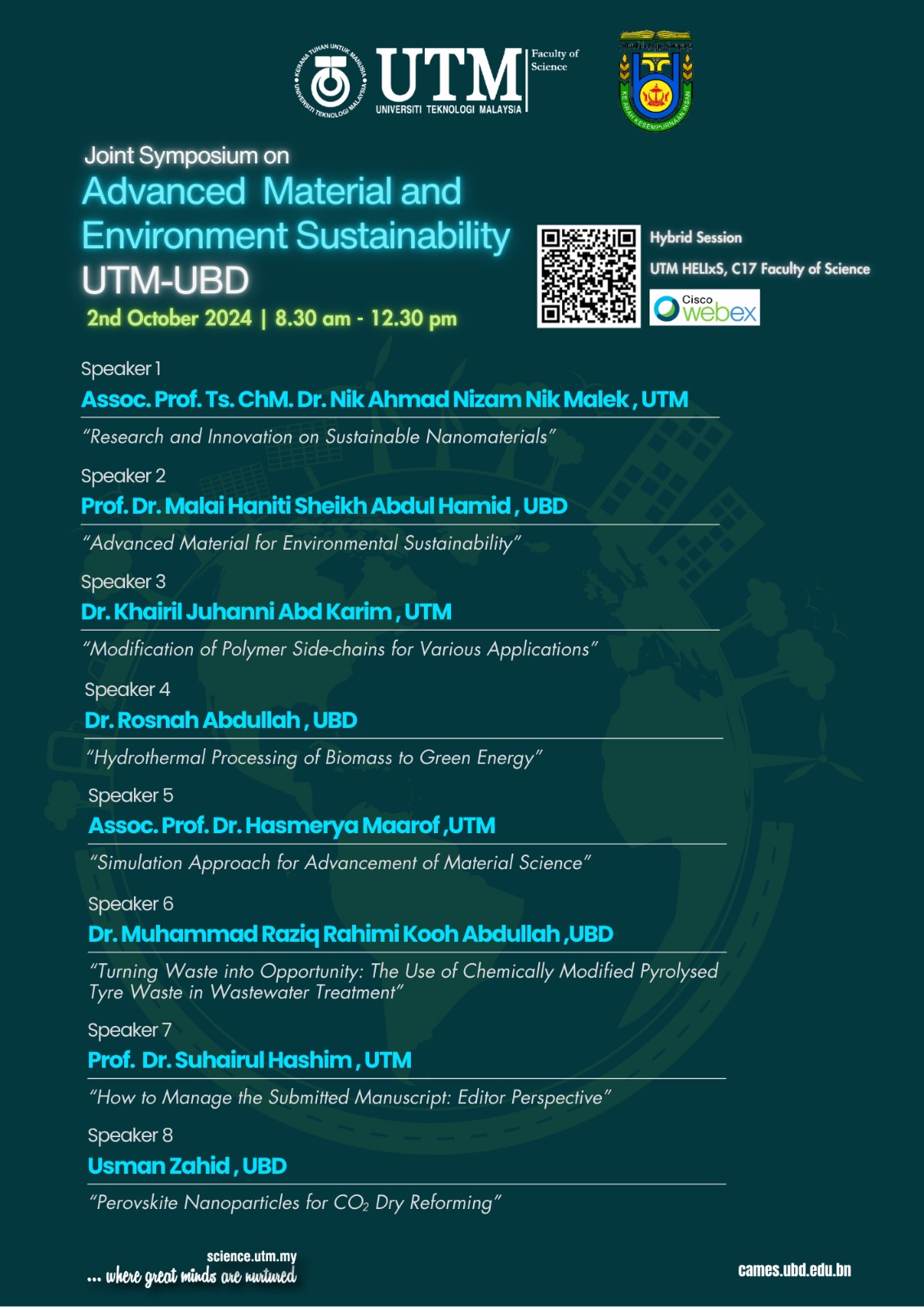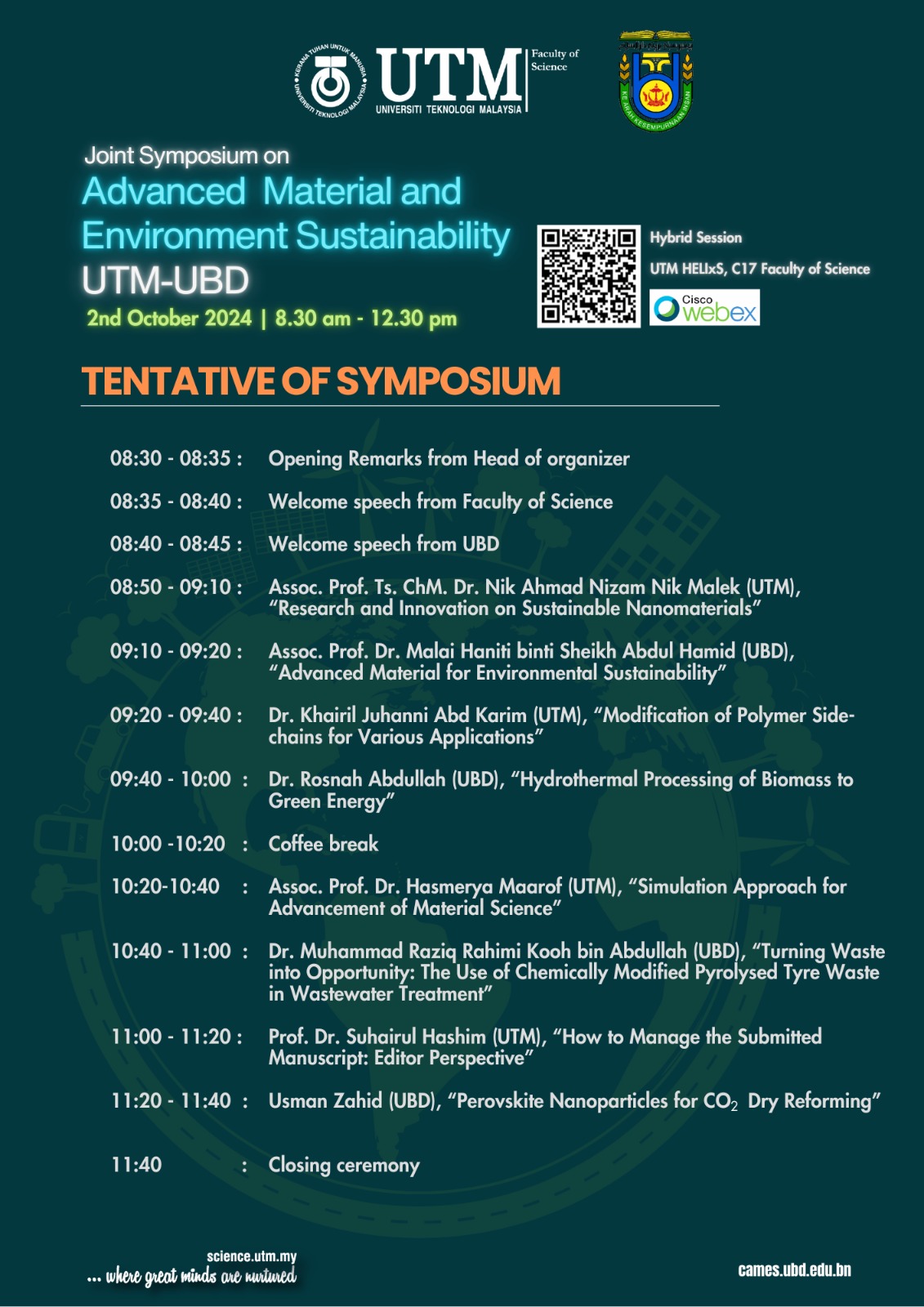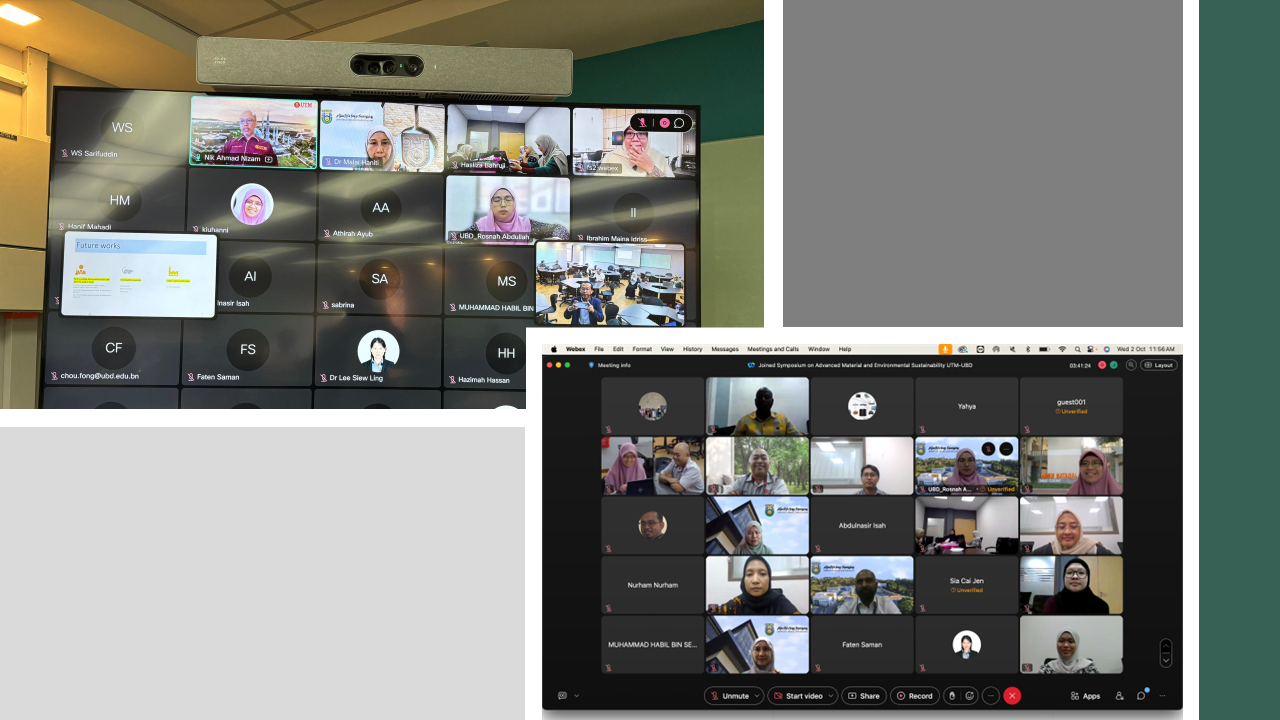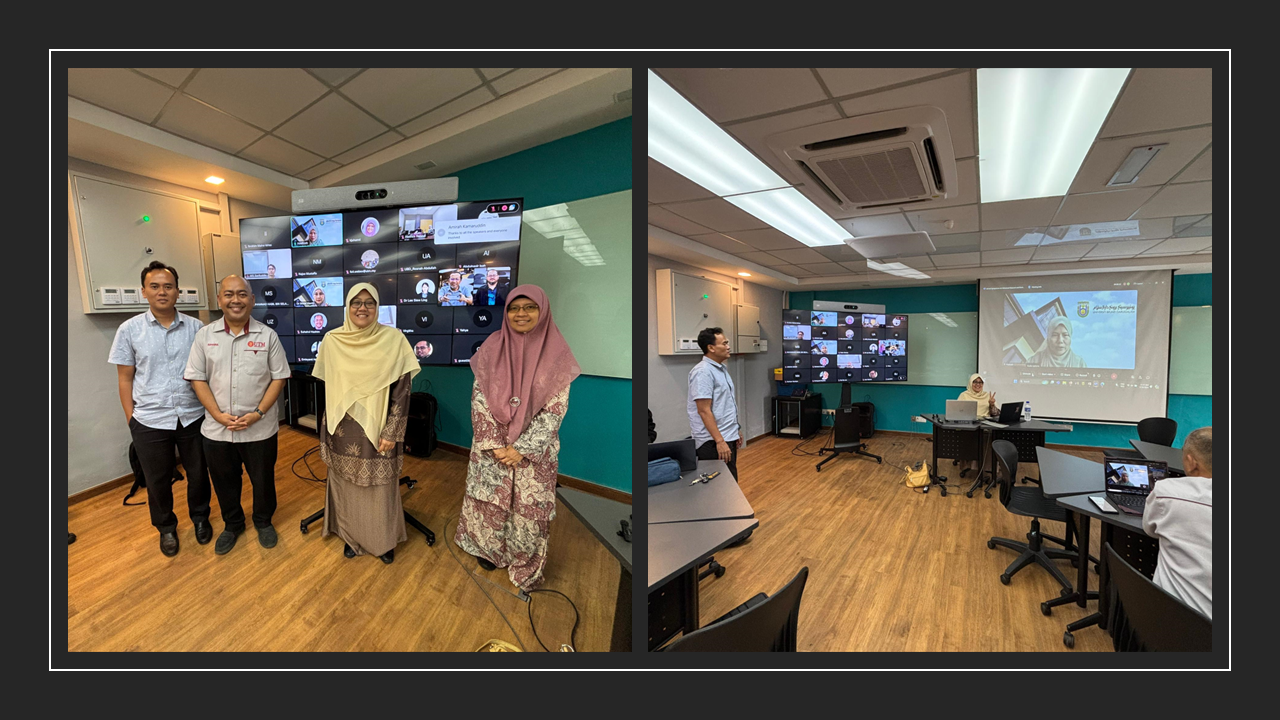UTM-UBD Joint Symposium 2024: A Collaborative Effort in Advancing Material and Environmental Sustainability
Universiti Teknologi Malaysia (UTM) and Universiti Brunei Darussalam (UBD) recently co-hosted a hybrid symposium on 2nd October 2024, focusing on advancements in material science and environmental sustainability. The event, titled “Joint Symposium on Advanced Material and Environment Sustainability,” gathered esteemed researchers, academics, and students from both institutions, further strengthening academic ties and fostering innovation in sustainability-focused research.
A Platform for Cutting-Edge Research
In his opening speech, the UTM representative welcomed all distinguished guests and participants, expressing gratitude for the ongoing collaboration between UTM and UBD. He emphasized the significance of the event as part of a broader initiative, stemming from the Memorandum of Understanding (MoU) between the two institutions, which continues until 2025. This partnership, he highlighted, is grounded in shared goals of advancing material science and contributing to global environmental sustainability in line with Islamic principles such as environmental stewardship and ensuring equitable access to resources for future generations.
The symposium was also an opportunity to deepen the collaboration between UTM’s Department of Chemistry and UBD’s Center of Advanced Material and Energy Sciences (CAMES), both of which have already seen impactful results, particularly in computational and simulation-based research. The speaker also outlined key objectives for the symposium, including facilitating research collaborations and publications, promoting cross-visits and knowledge exchange, and exploring financial support for joint research initiatives(Welcome Speech UTM (2)).
Event Highlights
The symposium featured eight distinguished speakers from UTM and UBD, each discussing their contributions to sustainable research.
- Assoc. Prof. Ts. ChM. Dr. Nik Ahmad Nizam Nik Malek (UTM) kicked off the event with his talk on “Research and Innovation on Sustainable Nanomaterials.” He highlighted the role of nanotechnology in enhancing environmental sustainability and the development of advanced, eco-friendly materials.
- Prof. Dr. Malai Haniti Sheikh Abdul Hamid (UBD) followed with a presentation on “Advanced Material for Environmental Sustainability,” emphasizing the importance of material science in addressing environmental challenges and promoting green technology.
- Dr. Khairil Juhanni Abd Karim (UTM) discussed “Modification of Polymer Side-Chains for Various Applications,” demonstrating how polymers can be engineered for enhanced performance in applications ranging from biomedical to industrial fields.
- Dr. Rosnah Abdullah (UBD) presented her research on “Hydrothermal Processing of Biomass to Green Energy,” offering insights into how biomass can be transformed into sustainable energy, reducing reliance on fossil fuels.
- Assoc. Prof. Dr. Hasmerya Maarof (UTM) contributed with her talk on “Simulation Approach for Advancement of Material Science,” where she demonstrated how computational simulations can advance the development of new materials, streamlining research efforts and minimizing costs.
- Dr. Muhammad Raziq Rahimi Kooh Abdullah (UBD) addressed the innovative use of waste in his presentation, “Turning Waste into Opportunity: The Use of Chemically Modified Pyrolysed Tyre Waste in Wastewater Treatment.” His research focused on how waste materials, such as pyrolysed tyres, can be repurposed for environmental benefits.
- Prof. Dr. Suhairul Hashim (UTM) provided a unique perspective with his session on “How to Manage the Submitted Manuscript: Editor Perspective,” offering invaluable advice to researchers on how to navigate the manuscript submission and publication process.
- Usman Zahid (UBD) closed the symposium with a talk on “Perovskite Nanoparticles for CO₂ Dry Reforming,” showcasing how this emerging technology can aid in reducing carbon emissions and promoting cleaner energy sources.
Fostering Future Collaborations
The opening speech emphasized the broader goals of the symposium, including facilitating cross-institutional research collaborations, student mobility programs, and the pursuit of matching grants to support ambitious joint projects. These objectives align with both institutions’ commitment to advancing sustainability and scientific excellence.
The symposium provided participants with productive discussions and networking opportunities. Both UTM and UBD expressed their commitment to deepening collaboration in areas related to environmental sustainability and material science. The symposium acted as a catalyst for future joint research projects, publications, and potential student exchange programs(Welcome Speech UTM (2)).
Conclusion and Future Outlook
The UTM-UBD Joint Symposium 2024 was a successful academic event that further solidified the relationship between the two institutions. The diverse range of topics presented, from nanotechnology to green energy solutions, demonstrated the dedication of UTM and UBD to contributing to global sustainability efforts through innovative research.
As the event concluded, plans for continued collaboration were discussed, with both institutions aiming to hold more such symposiums in the future, paving the way for continued excellence in academic research and technological development. The event highlighted the critical role of material science in solving environmental challenges and reinforced the need for cross-border collaborations in academia.
With their commitment to sustainability, UTM and UBD have set the stage for future academic breakthroughs that will positively impact the environment and society.
#utmfsresearch
